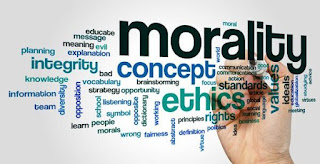Nightingale, S. J., & Farid, H. (2022).
PNAS of the USA, 119(8).
Abstract
Artificial intelligence (AI)–synthesized text, audio, image, and video are being weaponized for the purposes of nonconsensual intimate imagery, financial fraud, and disinformation campaigns. Our evaluation of the photorealism of AI-synthesized faces indicates that synthesis engines have passed through the uncanny valley and are capable of creating faces that are indistinguishable—and more trustworthy—than real faces.
Here is part of the Discussion section
Synthetically generated faces are not just highly photorealistic, they are nearly indistinguishable from real faces and are judged more trustworthy. This hyperphotorealism is consistent with recent findings. These two studies did not contain the same diversity of race and gender as ours, nor did they match the real and synthetic faces as we did to minimize the chance of inadvertent cues. While it is less surprising that White male faces are highly realistic—because these faces dominate the neural network training—we find that the realism of synthetic faces extends across race and gender. Perhaps most interestingly, we find that synthetically generated faces are more trustworthy than real faces. This may be because synthesized faces tend to look more like average faces which themselves are deemed more trustworthy. Regardless of the underlying reason, synthetically generated faces have emerged on the other side of the uncanny valley. This should be considered a success for the fields of computer graphics and vision. At the same time, easy access (https://thispersondoesnotexist.com) to such high-quality fake imagery has led and will continue to lead to various problems, including more convincing online fake profiles and—as synthetic audio and video generation continues to improve—problems of nonconsensual intimate imagery, fraud, and disinformation campaigns, with serious implications for individuals, societies, and democracies.
We, therefore, encourage those developing these technologies to consider whether the associated risks are greater than their benefits. If so, then we discourage the development of technology simply because it is possible. If not, then we encourage the parallel development of reasonable safeguards to help mitigate the inevitable harms from the resulting synthetic media. Safeguards could include, for example, incorporating robust watermarks into the image and video synthesis networks that would provide a downstream mechanism for reliable identification. Because it is the democratization of access to this powerful technology that poses the most significant threat, we also encourage reconsideration of the often laissez-faire approach to the public and unrestricted releasing of code for anyone to incorporate into any application.
Here are some important points:
This research raises concerns about the potential for misuse of AI-generated faces in areas like deepfakes and disinformation campaigns.
It also opens up interesting questions about how we perceive trust and authenticity in our increasingly digital world.













